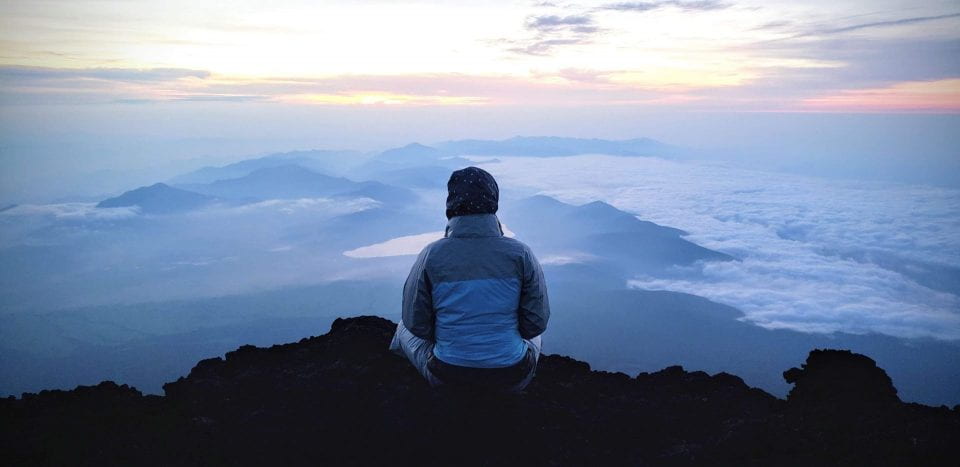G&EE recently caught up with Nadia Mathis (ESIA, B.S. in International Affairs and Asian Studies ‘20) to have a conversation about her time at George Washington University and her participation on three international experiences as part of GW's Global Bachelor's Program. Read more on the conversation just below -
G&EE: Tell us (and our readers) a little bit about yourself.
Nadia: Hi! My name is Nadia Mathis, I graduated from the George Washington University (GW) in May 2020 with a BS in International Affairs and Asian Studies from the Elliott School of International Affairs (ESIA). I am currently pursuing an MS in International Business from GW’s School of Business!
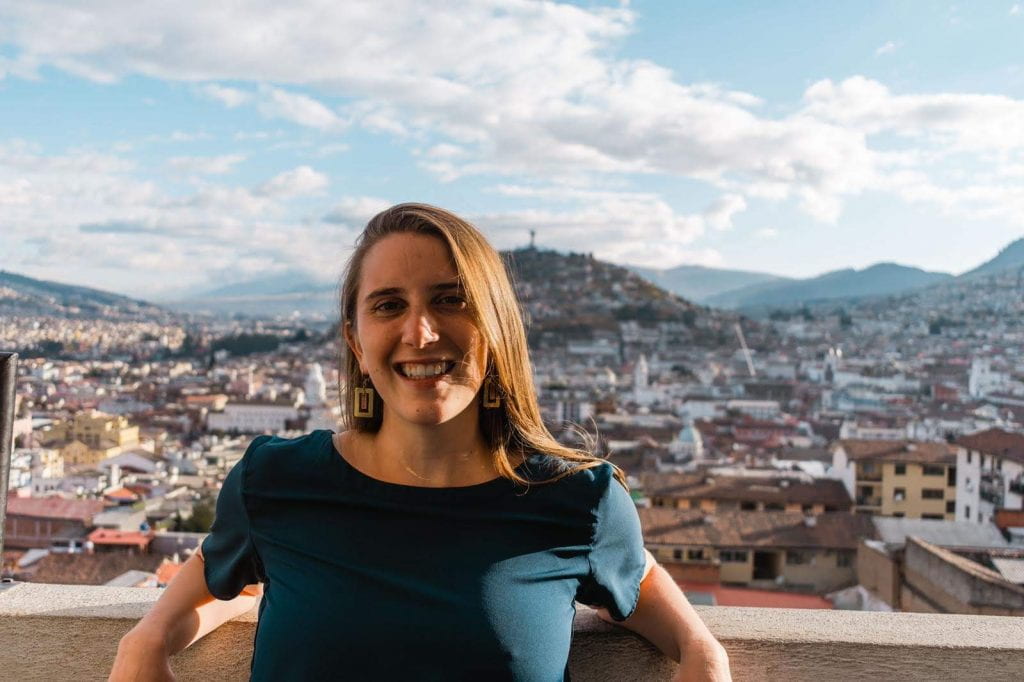
During my undergrad, through the Global Bachelor’s Program, I studied in Shanghai, China, and Sydney, Australia. I also did a short-term study abroad program with the GW Institute of Korean Studies in Seoul, South Korea, and interned with the U.S. Department of State in Quito, Ecuador. I am originally from Dallas, Texas, and in my free time, I enjoy hiking and making polymer clay earrings!
G&EE: How did you hear about the Global Bachelor’s Program and what drew your interest to apply to the program?
Nadia: I heard about the Global Bachelor’s Program before even coming to GW as the study abroad opportunities available was a big draw for me to attend the university.
As someone interested in diplomacy and foreign policy, I was drawn to the idea of spending multiple semesters abroad. The Global Bachelor’s Program, in particular, was interesting to me because of the research aspect. Throughout the program, we focus on a global topic and conduct research in each country relevant to that topic. My research, for example, was on government policies towards the sex industry in China and Australia. This research aspect allowed us as students to study a topic in-depth across multiple countries and to meet with people at every stage. Throughout my program, I met with scholars working at think-tanks, universities, as well as people who had experience with my topic at a more personal level. This allowed me to connect my experiences, rather than having three disjointed abroad experiences. During my senior year, I presented my research topic to my cohort.
G&EE: Prior to the Global Bachelor’s Program you spent time in Seoul, South Korea. What took you to Seoul and how did that connect to your future experiences on the GBP?
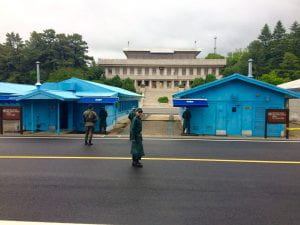
Nadia: I went to South Korea with the GW Institute of Korean Studies. This two-week program focused on the politics of the two Koreas. Through this program, we spoke with a variety of professionals from the government, multinational corporations such as LG, Samsung, and SK, and NGOs. My interest in studying in South Korea stemmed from a family trip I took there while in high school, to visit my brother who was living north of Seoul. At the time, I was interested in studying U.S.-Korean relations and even studying Korean. This short-term study abroad prepared me to take on the task of living abroad for an entire year through GBP and made me more comfortable with the idea of spending so much of my undergraduate abroad. Part of this was the nature of the program, our days were packed with meetings and events, but we still had enough free time to get to know the city on our own. This program was immensely valuable but it also pushed me to spend more time abroad the next time around.
G&EE: Your first semester abroad with GBP was to Shanghai, China. What were your expectations for this program before you departed and how did they change? How did the experience challenge you? In what ways did this experience impact your following international experiences as well as your time at GW?
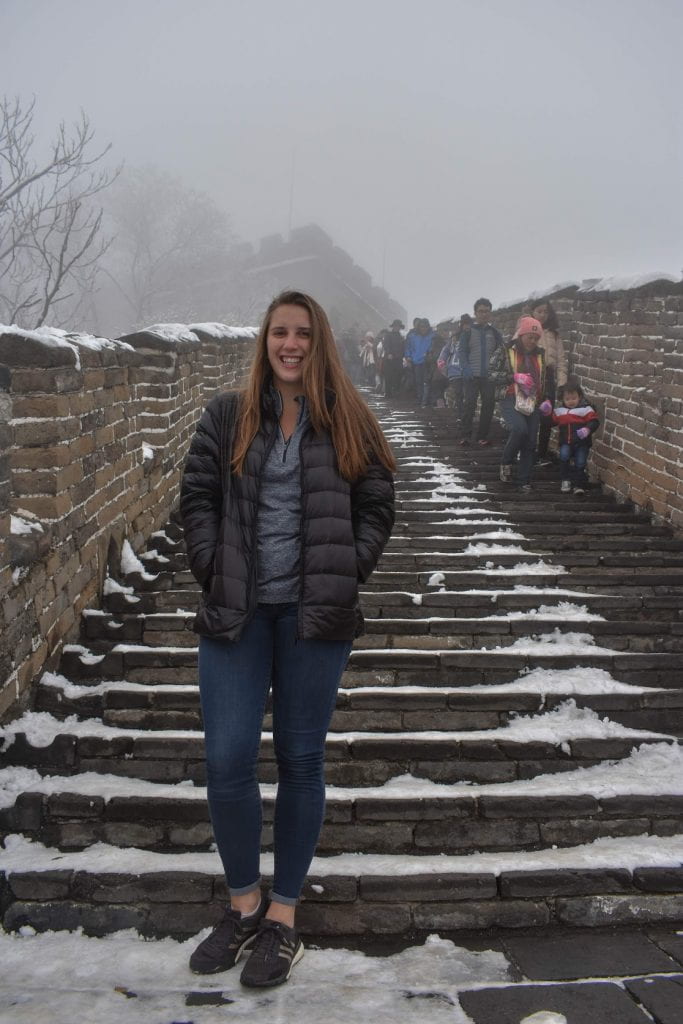
Nadia: I went to China with relatively little in the way of expectations. My experience with China had been mostly academic - through GW courses on U.S.-China relations and in Chinese language courses. As such, I tried to go into the program without expectations. This worked out, as my lack of expectations allowed me to be blown away at every turn – whether from Shanghai’s food scene to China’s geographic diversity. In my courses, this lack of expectations allowed me to go into my courses with a more open mind. One of my favorite things about studying at multiple universities throughout my undergraduate is that it allowed me to study multiple subjects from a variety of perspectives. During my sophomore year, I took a history of U.S. diplomacy in the fall at GW, followed by a history of Chinese diplomacy course in the spring at Fudan. We studied many of the same subjects in these two courses, which allowed me to contrast the perspectives of the U.S. and China on massive events in history, like World War I and the Cold War - and even to draw comparisons to U.S.-China relations today.

A lot in China challenged me, from getting food poisoning while on vacation in the South to the academic rigor – I was enrolled in a full course load and was studying Chinese most days. At the same time, there was a certain level of comfort that GW offered while in China. The ~30 of us students in the program all lived together in one building and we had significant support from GW. This meant that, when something went wrong, we were never far from support. This prepared me, in a way, for my other study abroad experiences – giving me the resources I needed to respond to crises – whether it was dealing with health insurance or a lost passport.
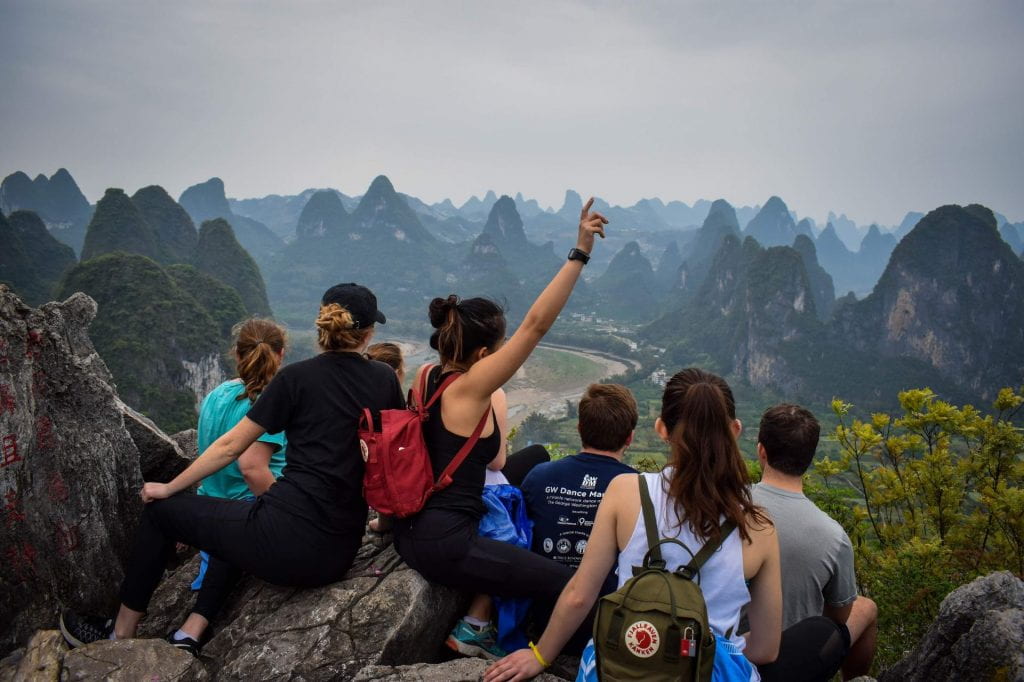
G&EE: Your second semester abroad with GBP was to Sydney, Australia. Why did you choose this particular destination for your second international experience? What did you study and did your time in Sydney shift your academic or professional interests?
Nadia: When it came to choosing a second study abroad, I knew I needed to continue studying Chinese so that I could fulfill degree requirements towards my Asian Studies major. I chose to go to Australia because I knew it was a place I could continue studying Chinese and spending a semester there would allow me the opportunity to see many parts of the country that a short trip would not allow.
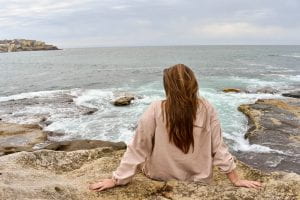
While at the University of Sydney, I took courses on East Asian Economics, Tibet-China relations, and Australian history. In many ways, these courses were a continuation of my regional focus in Asia. In my Australian history course, I even wrote a paper on Sydney’s Chinese community in the 1890s. Further, Australia is truly the diplomatic center of the U.S. and China - a dynamic that I cannot say I was aware of before studying there. Diplomatically, Australia has been very close to the U.S. since World War II, but in recent years, Australia has been pivoting towards China on economic issues because of the proximity and trade interdependence.
G&EE: Your third experience with the GBP was to intern in Quito, Ecuador. Where exactly was your internship and with what organization? Did this internship abroad impact your future professional goals?
Nadia: In Quito, Ecuador, I interned with the U.S. Department of State at the economic and commercial section of the Embassy. This internship, in many ways, solidified my professional goals. I knew I wanted to intern with the Department of State from the get-go, but working in the economic section was a bit of a surprise for me! Before my internship, I had mostly focused on the political side of things. However, in the economic section, I was able to do research on the economic relationship between Ecuador and China and learn more about U.S. objectives in that realm. While in Ecuador, I worked on a variety of projects, including the Ecuador Country Commercial Guide, Chinese investment in Ecuador, and Ecuadorian import standards. This sparked my interest in trade policy – which led me to take a trade policy internship at the Asia Society and now, to work in the Global Policy division of the Association of American Publishers in D.C. while pursuing my Masters of Science in International Business at GW’s School of Business. While I still hope to become a foreign service officer one day, this internship clarified my professional interest in the subsection of trade policy.
The Department of State has internship opportunities every semester and each summer. For the summer internships, the applications close the September of the year before! Most embassies take student interns in each of the offices - political, economic, consular, and public affairs. For more info: https://careers.state.gov/interns-fellows/student-internships/.
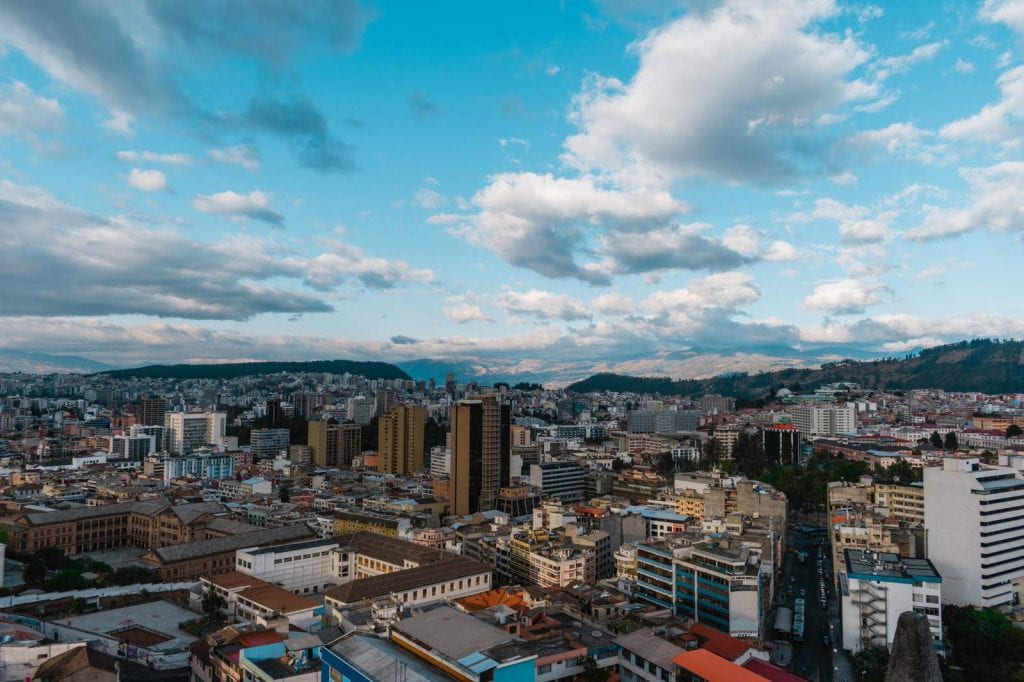
G&EE: Cultural immersion leads to the enhancement of transferable skills (flexibility, teamwork, leadership, listening, communication, problem-solving, critical thinking). Reflecting on your experiences abroad, what are one or two transferable skills you improved and provide a brief anecdote about it.
Nadia: Before studying abroad in Shanghai, China, I traveled through Thailand and Vietnam by myself. Nearing the end of my trip,
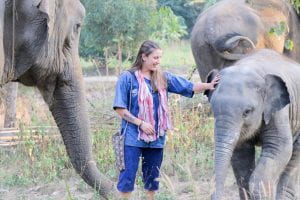
I got on an overnight train to travel from northern Vietnam to southern Thailand only to get stopped at the border because my visa did not allow me to leave Vietnam by train. Despite debating with the train conductor and border officers in broken Mandarin, I was not able to get back on the train.
After spending a night at the train station, I managed to convince a taxi driver to drive me to another border crossing, five kilometers away, where I could cross by foot. Six hours later, I exited Vietnam and entered China marking the start of my study abroad experience. Despite these, self-imposed problems, I was able to communicate with officers in a foreign country and foreign language, reaching my final destination. Plans often go awry, but it is important to be flexible to any changes in your plans.
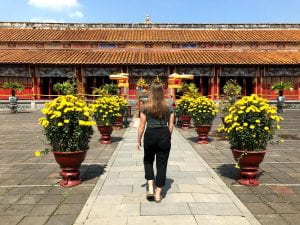
Additionally, through my global research topic, I interacted with a variety of people in China, Australia, Ecuador, and the U.S. on my topic. The sensitive nature of my topic, sex trafficking, meant that I had to balance getting information about my topic with local expectations of propriety. This often meant listening, allowing others to lead the conversation, and share what they were comfortable with. It also meant being told I was wrong concerning some of my preconceptions.
G&EE: You participated in a wide range of international (mobility) programs all around the world! Do you have a favorite memory or experience in all of your travels? Did you travel anywhere else during your free time?
Nadia: While I love Shanghai, the city-ness of it can be stifling. As such, the other students in my program and I took advantage of every long weekend we had to get out of the city. On one of these trips, we went to Yangshuo, a small city in the south. One of us was a GW trails guide, and so planned a day-long hiking trip during which we summited a small mountain called Xinping. I didn’t know it then, but this sparked an interest in climbing small mountains - an interest that has stayed with me. A few months later, while traveling in Japan with my little sister, I summited Mount Fuji at sunrise – a sight which later brought me to the summit of Mt Kosciusko, Australia’s tallest mountain, and to the two tallest mountains I’ve climbed, Ruminahui and Pichincha, in Ecuador.
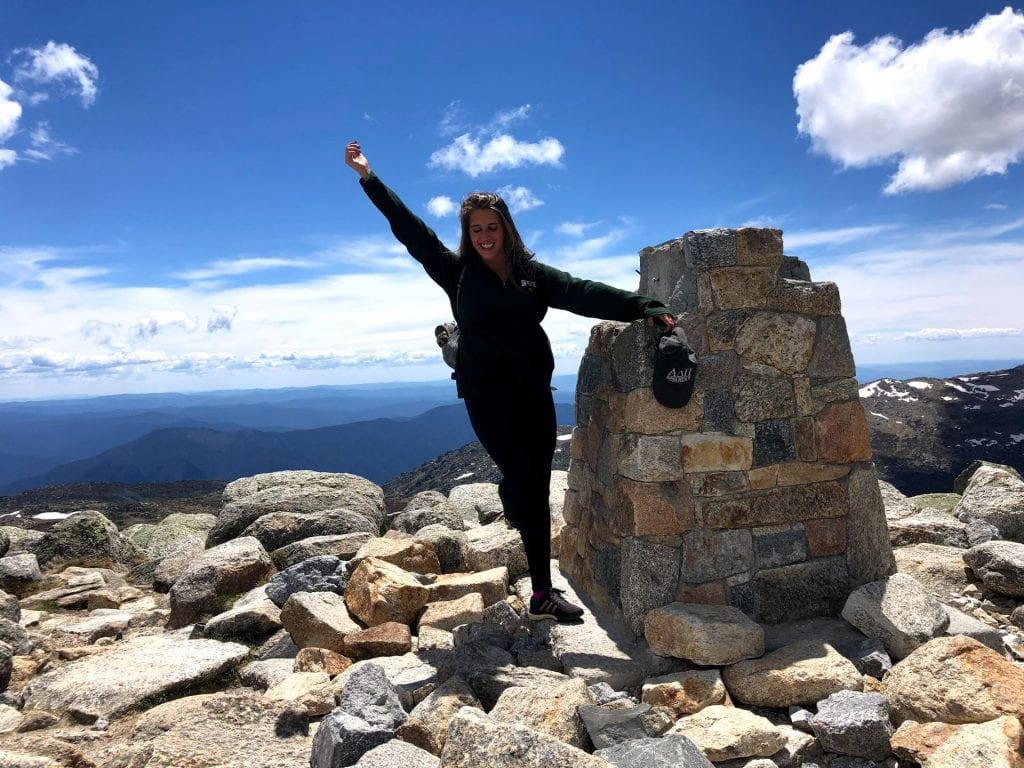
G&EE: Reflecting your overall experience on the international (mobility) programs, what are some key observations, takeaways, and pieces of advice you would give to prospective students?
Nadia: I could tell you that I planned my abroad experiences with precision to maximize my studies of U.S.-China relations but that isn’t exactly true. As my time abroad progressed, I learned more about my needs as a student and as a person and adapted my plan to fit these.
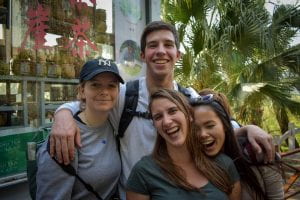
This meant focusing my internship applications on Latin America when I realized how quickly my Spanish language skills were declining, and it meant studying abroad in Australia, where there would be less of a culture shock, after spending the semester in China.
It’s easy to idealize studying abroad, but at the end of the day moving to a new place, alone, is tough. There are good days and bad days but it's about making the most of the experience as a whole (even if that means spending a weekend watching Netflix).
To prospective students:
- Take advantage of the funding GW offers. From the STAAR Scholarship, FOFAC, and KACIF, I could not have studied abroad in four places without the help I received from each of these.
- You don’t have to be in the Global Bachelor’s Program to intern abroad, but you do have to start applying early. The Department of State internship, in particular, has a September due date – 9 months before the summer starts!
- Find a way to spend time with the local students where you are – whether this means joining a club, working, or living with a host family. Every person does this differently, but it is easy to spend all your time with Americans.
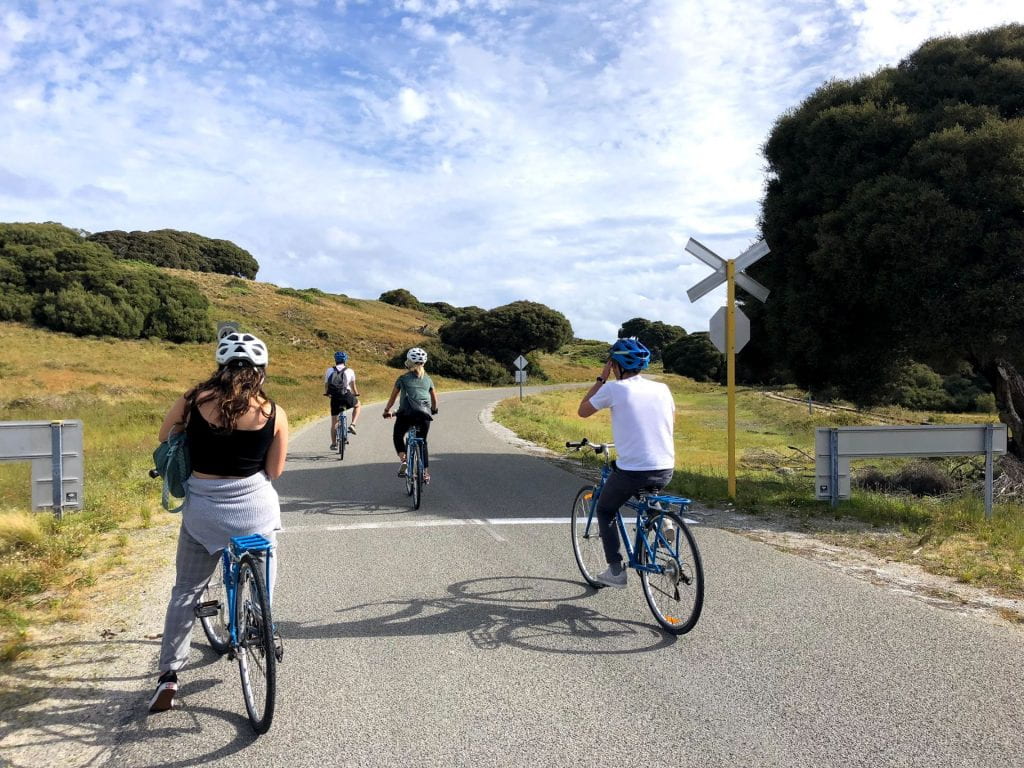
--

